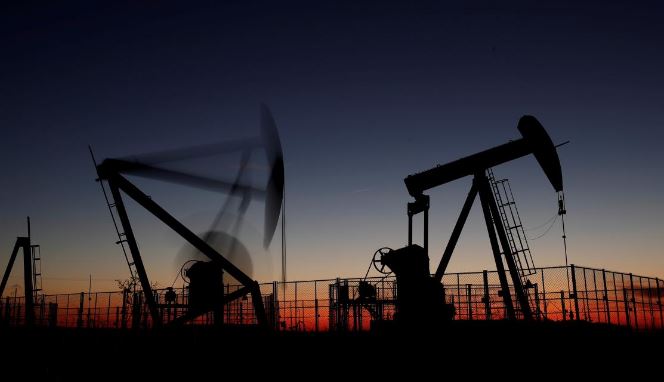
New York (CNN Business) — China is pushing back against the United States’ decision to broaden its crackdown on Iranian oil exports, deepening the uncertainty in the global oil market.
Beijing on Monday slammed the Trump administration’s announcement that it would stop exempting several countries from its sanctions on buying oil from Iran. China is one of the world’s biggest importers of Iranian oil, along with India.
“China opposes the unilateral sanctions and so-called ‘long-arm jurisdictions’ imposed by the US,” Chinese foreign ministry spokesperson Geng Shuang said during a press briefing Monday. “Our cooperation with Iran is open, transparent, lawful and legitimate, thus it should be respected,” he added.
The sanction waivers were granted to China and seven other countries last year. They are set to expire May 2.
China wasn’t the only one of those countries to rebuke the Trump administration’s latest decision.
“Turkey rejects unilateral sanctions and impositions on how to conduct relations with neighbors,” that country’s foreign minister Mevlut Cavusoglu said Monday on Twitter.
The sanctions could have significant consequences for those two countries in particular. Analysts say China and Turkey will struggle the most to reduce their Iranian oil supplies, particularly within such a short time frame.
“I think China and Turkey will be the two that will be the most worrisome, and will be the most vexed by this action,” said Tom Kloza, global head of energy analysis at the Oil Price Information Service. He described the US move as “very disruptive.”
“I don’t think we saw this as becoming zero tolerance so quickly,” he added.
US Secretary of State Mike Pompeo said Monday that countries continuing to buy crude oil from Iran beyond the May deadline would have to face the consequences.
“We’ve made clear if you don’t abide by this there will be sanctions,” he said.
Still, analysts say China is unlikely to completely stop importing oil from Iran.
“We are debating whether or not China will cease their imports. We’re leaning towards they won’t,” Matt Sallee, portfolio manager at energy investment firm Tortoise, told CNN Business.
India, meanwhile, did not immediately respond to the US announcement Monday. Iran is the South Asian nation’s third-largest supplier of crude oil, behind Iraq and Saudi Arabia.
India’s petroleum ministry did not respond to a request for comment, either. But the Indian government has previously said that it “does not recognize unilateral sanctions, but only sanctions by the United Nations.”
That country also has lined up “alternate sources” to replace its supplies of Iranian oil, according to the Press Trust of India news agency.
Washington’s decision not to renew the sanction waivers sent US oil prices shooting up nearly 3% on Monday. Brent crude, the global benchmark, also surged 3.4% to hit $74 a barrel for the first time since early November.
That spike is likely to continue, since the cutting off of Iranian supply adds to ongoing issues with other major suppliers like Venezuela and Libya.
Monday’s announcement “moves oil markets into much tighter territory for the remainder of the year,” said Shin Kim, head of supply and production analytics at energy research firm S&P Global Platts.
“The market’s spare capacity will largely be spent covering for Iran,” Kim said, adding that the heightened risks to global supply means “oil prices will be higher.”
CNN Business’ Matt Egan contributed to this report.
By Rishi Iyengar, CNN Business




